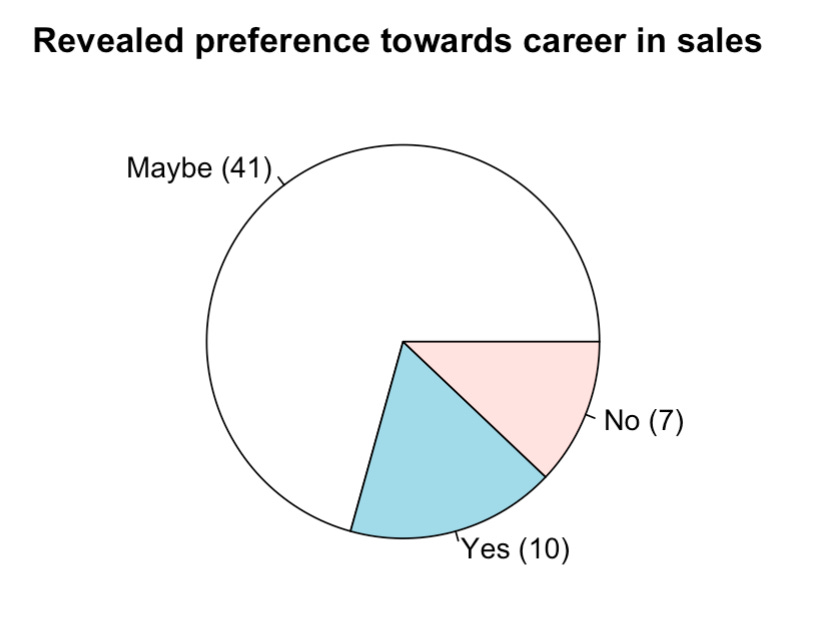SADMAN - Session 1 - Welcome to the Course

Dear Students,
I was caught up with some admin work for the last few days and could not find time to put pen to paper for the newsletter. I finally found some time and I thought I should quickly summarise the session and charter a course forward.
First, let me welcome you to the course. Sales and distribution is something that is close to my heart and I am as excited as you are about the course. Let’s cut straight to the point. One of the first things from pop culture that comes to our mind when someone says sales is the scene from the Wolf of Wall Street. If you have not seen the movie, I’m linking the scene down below, as a bonus, the video also features some clips from of Jordan Belfort’s (the real Wolf of Wall Street). I sincerely recommend that you watch it fully.
I agree with what Belfort has to say. The first step of salesmanship is Need Identification. Therefore, it’s critical to ask questions to clients. Questions like, ‘for how long are you in the market for this product?”, “what kind of product are you currently using?”, etc. However, this can also be a trap. Remember the discussion of selling, product, and marketing orientation from Marketing Myopia (by Levitt)? If Levitt were in the room with us, he would say Belfort is being terribly sales orientated. And that the job of good marketers is to make selling redundant. Now, does that mean we are going to be out of jobs in sales any time soon? Very unlikely.
What I think Levitt might mean by that is that salesman should take on the role of a consultant and try to make the sales more about adding value to the customer rather than the typical ‘pulling’ and ‘pushing’ that brands indulge in. But then, how can someone who sells shampoos and soaps act like a ‘consultant’? Is it humanly possible to listen individually to every customer and provide him what he or she needs? I think the answer is yes. However, there is a qualitative difference between the kind of ‘consultant’ we typically think of and the ‘salesman consultant’. In sales, we do use our ears to listen to customers, but then we also listen to consumers through surveys, focus groups, sales data, product reviews and ratings. These are concepts that we will be discussing in greater detail over the course of the term. We will also try and understand why and how salespeople should try and segment the market and understand which segments are the most lucrative. We shall also touch upon how technology has revolutionised sales and pick up a few learnings from a panel discussion that I am currently planning with some industry experts.
Let me also provide you with a brief glimpse of the responses that the class had provided in the sales survey. More than 70% (41 members) of the class is yet to make up their mind about a career in sales, while 17% (10 members) want a career in sales. About 12% of the students have clearly made up their mind not to choose sales as their profession. The data is presented in the form of pie chart down below.

While the student mix is somewhat different from what I had originally imagined it would be, it will not make a major shift in the way the course is going to be organised. For the most part, we will focus on understand sales as a revenue generating process and work on hard and soft skills that will help you hone your skills as a salesperson. It would be interesting to see how this pie chart changes towards the end of the course. There may be something in the course for those who are not interested in a sales career. After all, everyone is a salesperson in one way or the other, and I hope the course introduces you to some concepts that can be applied in your respective careers.
I also studied your own exceptions from the course (from the survey responses). In general most of you want to learn about
- Practical application of theories and concepts
- The tools to gain insights from sales data
- The salesperson's mind
- Sales strategy
These are topics that we will be covering extensively over the duration of the next 8-10 weeks. Having said that, there are few links that I think you should check out:
1. Why R should be part of your marketing toolbox - - considering that we will be doing some level of R.
2. Book recommendation: Predictable Revenue: Turn Your Business Into A Sales Machine With The $100 Million Best Practices Of Salesforce.com
3. Marketing Myopia - Read it once more, It’s a terrific article.
4. The simulation game we will be using during the course- (A demo for the same is being organised)
In the second class, we will be diving right into the meat of the subject. The process of sales forecasting.
Do not forget the pre-reads. Let’s meet in class soon.
Happy Diwali!
Karthikeyan



